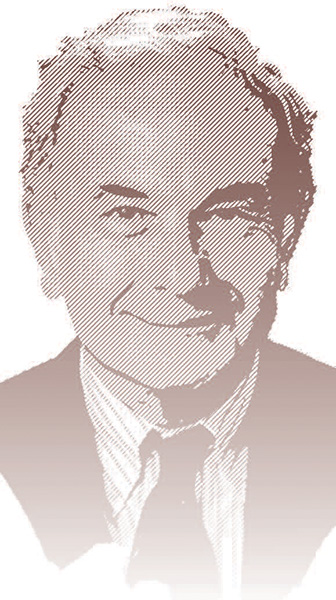A loss for civil engineering: Professor Mete Sozen
Purdue Engineering mourns the loss of a beloved mentor, researcher and friend: Mete A. Sozen. He died on April 5, 2018, while visiting family in suburban London. He was 87 years old.
Sozen's research revolutionized the field of earthquake engineering. Over the course of his 60-year academic career, he consulted and lectured around the world, earned dozens of honors, and was revered as a teacher and mentor. He taught at the University of Illinois until 1994, and then at Purdue University, where he was the Karl H. Kettelhut Distinguished Professor of Civil Engineering. He advised 58 graduate students earning their PhDs — many of whom are now leaders in the field.
Drift, not force
Perhaps Sozen's most famous invention was the earthquake simulator for structural applications, a tool that, in the early 1980s, led him to a watershed insight: The design of earthquake-resistant structures should not be based on force, the approach which had been prevailing for decades, but on drift — the degree to which the floors in a building move with respect to one another during an earthquake. This idea represented a radical change in a field that at the time was still operating on the basis of preconceptions established in the early 1900s. It opened the door to simpler and better ways to design and evaluate buildings and bridges.
An advocate for simplicity
Sozen was an ardent advocate for simplicity in engineering. He was an unconditional supporter of "the heroes of the profession" as he called them, people like Talbot, Richart, Westergaard, Cross and Newmark — among others whom he often cited. Sozen was responsible for numerous innovations in design, analysis, and testing, in particular for reinforced, prestressed concrete and building systems. In 2006, the Applied Technology Council (ATC) added Sozen to its list of top seismic engineers of the 20th century. The nonprofit ATC helps transfer into practice research findings related to the effects of natural hazards.
Mentor and teacher
Sozen had a profound influence on his students. Santiago Pujol, Purdue Professor of Civil Engineering, studied under him as an undergraduate and graduate student. "He insisted we call him 'Mete,' not 'Dr. Sozen,' not 'Professor Sozen,'" Pujol says.
"What really made an impression on me was that he was quite kind and patient. He would find a smart way to tell me I was wrong, without exactly saying so," Pujol says, laughing. "He did that all the time."
As a researcher and thinker, Sozen was known for his remarkable focus. "When he was thinking about something, he wouldn't stop," Pujol says. "He would think about it day and night, every day. For weeks, if necessary." Invariably, he would find a solution. "You don't often encounter persistence like that."
Sozen loved research and teaching. "He never thought of retirement as something to be celebrated — because for him, work was a joy," Pujol says.
Honoring Mete
To honor Mete Sozen, the Lyles School is raising funds for a scholarship in his name. It will be used to support students interested in earthquake engineering. To make a contribution, contact Don Fry, chief development officer, at 765-494-2236 or drfry@prf.org.

